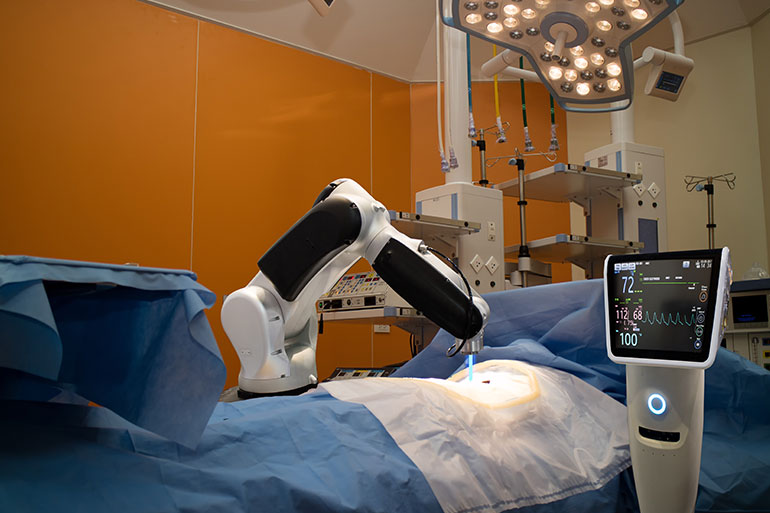
AI’s Evolving Role in Healthcare: From Diagnosis to TreatmentAI’s Evolving Role in Healthcare: From Diagnosis to Treatment Artificial intelligence (AI) is rapidly transforming the healthcare landscape, revolutionizing the way we diagnose, treat, and manage diseases. With its unparalleled ability to analyze vast amounts of data and identify patterns, AI is poised to revolutionize every aspect of medical care. Diagnosis AI algorithms can analyze patient data, including medical records, lab results, and imaging scans, to identify patterns and anomalies that may indicate a disease. This allows for earlier and more accurate diagnosis, even in complex cases where traditional methods may fall short. For example, AI systems have been developed to detect diabetic retinopathy, Alzheimer’s disease, and various types of cancer with remarkable accuracy. Treatment Planning Once a disease is diagnosed, AI can assist in developing personalized treatment plans. By considering a patient’s unique characteristics, such as genetic profile, medical history, and lifestyle factors, AI algorithms can recommend tailored therapies and predict the likelihood of treatment success. This approach can optimize outcomes and reduce the risk of adverse reactions. Surgery and Procedures AI-powered robotic systems are also making their mark in surgery. These systems provide surgeons with enhanced precision, dexterity, and advanced visualization capabilities. This enables minimally invasive procedures, shorter recovery times, and improved patient outcomes. For instance, AI robots are being used to perform complex surgeries such as heart valve replacements and prostate cancer removal with exceptional accuracy and efficiency. Drug Discovery and Development AI is transforming the drug discovery and development process. Advanced algorithms can screen millions of potential drug compounds, identify promising candidates, and predict their efficacy and safety. This accelerates the drug development timeline and reduces the risks associated with clinical trials. Additionally, AI can help personalize drug treatments based on individual patient characteristics, leading to improved outcomes. Health Monitoring and Management AI-enabled devices and apps are empowering patients to actively participate in their own health management. Wearable devices track vital signs, sleep patterns, and physical activity, while AI algorithms analyze the data to identify potential health risks. This promotes early intervention, prevents complications, and improves overall well-being. Challenges and the Future Despite its immense potential, the evolving role of AI in healthcare also presents challenges. Data privacy, ethical considerations, and the need for robust validation and clinical trials are critical issues that require ongoing attention. As AI technology continues to advance, it is essential to ensure its responsible and ethical use in order to maximize its benefits for patients and society as a whole. In conclusion, AI is driving a paradigm shift in healthcare, unlocking unprecedented opportunities for improving patient outcomes, streamlining medical processes, and empowering individuals to take charge of their own health. As AI systems become more sophisticated and integrated into all aspects of healthcare, we can expect to witness even more transformative innovations in the years to come.
Posted inNews